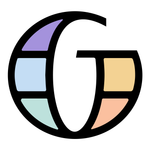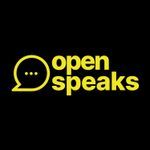This week, a new grant opportunity, grant reports, Web Monetization discussions and of course more community engagements are coming your way!
A Big Announcement


Announcing a new call for proposals for ILP-based financial services
Chris Lawrence for Interledger Foundation ・ May 4 '22
This week the Interledger Foundation announced a new call for proposals for ILP-based financial services.
In continued service of our mission, and learning from our Grant for the Web program, we are excited to announce the next open Call For Proposals (CFP) to target the creation of more financial nodes in the Interledger network. We will be looking for projects that want to plan and build financial services.
This CFP will support up to 20 projects through a research, development, and planning phase. This grant opportunity covers phase one, and projects selected in this opening round will be eligible and competitive for round two.
We will begin accepting applications for the Research and Planning phase on May 17, 2022.
Stay tuned for further details and be sure to join the Interledger Slack channel.
Let’s discuss
With the kickoff of a new open call for proposals, we’d like to keep the conversation going about and advancing the Web Monetization ecosystem.
Visit https://community.interledger.org/t/discuss to see what community members are sharing, questioning and discussing.
Read what community members are talking about and If you would like to offer your own response to get the conversation going, make sure to leave a comment under that post.
Grant Reports from projects Open Speaks and Decentralized Identity & Payments
Subhasish P’s project Open Speaks research attempts to understand the web content ecosystem in two indigenous Adivasi languages in final report.
Project Update
The broader scholarship in anthropology has provided some context to how the socioeconomic and linguistic hierarchies in the Indian subcontinent have created access and participation barriers for many marginalized communities. Furthermore, studies also help understand more the direct impact of systemic socioeconomic privileges (or the lack of them) on the agency of such communities affected by technology. Many new and emerging technologies, such as the Distributed Ledger Technology (DLT), are often touted as open and distributed by design. In theory and at the outset, DLT does have the potential to promote openness and accountability from a technical standpoint. However, user sovereignty, wider access to information and fair and equitable content monetization in relation to socioeconomic dominance need further investigation. In our research, we have attempted to understand the web content ecosystem in two indigenous Adivasi languages – Ho and Santali – and how the current challenges and opportunities correspond to the future of web content monetization using DLT. It is important to note that Ho and Santali speakers have historically been oppressed in India, most notably through the Hindu caste system as it percolates through access to wealth, education and livelihoods. The affordability of smartphones and computers for creating content, the access to the internet, know-how about monetizing content, the affordability of the content users to pay for content are some of the factors we studies in our work.
Dominik Beron shares highlights from project Decentralized Identity & Payments in final grant report
Project Update
Over the course of this project we conducted technical and market research as well as talked to thought leaders and companies in different industries. What we found is that the payments and financial incentives will not only be a crucial enabler of decentralized and self-sovereign identity, but that (in many cases) they will even be (legally) necessary, such as in the context of applying decentralized identity to AML regulated industries.
In a nutshell, the insights we got from our research show that the proposed project is even more relevant than we initially thought it would be.
Progress on objectives
While the timeline between different milestones shifted a bit (e.g. we included external experts earlier than anticipated relative to other milestones such as the finalization of the architecture) and the overall deadline was extended, we completed all the milestones as proposed.
- Project kick-off
- Onboarding of project staff
- Research (technical, legal, market)
- Conceptualized architecture
- Start compiling / writing the white paper
- Get external feedback
- Create and finalize the technical architecture and specifications
- Finalize and publish two whitepapers Note that, we extended the scope of the project and published not only one whitepaper, but two whitepapers: Decentralized Identity and Data Monetization - Explains data monetization approaches for decentralized identity; written for technical and non-technical readers. Decentralized Identity and Interledger Protocol - Explains how the Interledger Protocol can be combined with SSI (and data exchange protocols like OpenID Connect) to implement peer-to-peer data monetization; written for technical readers.
Many thanks to Subhashish and Dominik for sharing their reports.
What’s Happening in our Community!
ILF Monthly Community Call
Join the next ILF Community Call on May 11, there will be updates on Interledger Foundation, Rafiki, Fynbos, Coil and Open Payments teams, with additional slots open for anyone that would like to share their project or a discussion item for the broader community.
For details go to: https://forum.interledger.org/t/community-call-may-11-2022/1416
Community Call hosted by GftW awardee Erika Kitzmiller


Join us for the next GftW Community Call on May 23!
Ayesha Ware for Grant for the Web ・ Apr 28 '22
Join our upcoming Community Call on May 23, 2022 at 2:00 pm EDT / 6:00 pm UTC hosted by Grant for the Web awardee Erika Kitzmiller, an historian of race, inequality, and education whose scholarship examines the historical process and current reform efforts that have contributed to inequality today.
To register: https://www.eventbrite.ca/e/329267206077
Erika Kitzmiller and Steven Goss, advisors for the 11/30 Youth Collaborative (formerly known as Central PA Info Hub ) will provide an overview of the project and invite attendees to discuss the potentials and limitations of web monetization for grassroots, community-based projects.






Top comments (0)